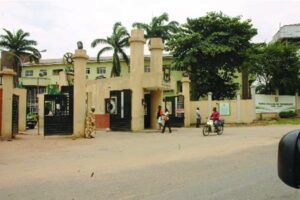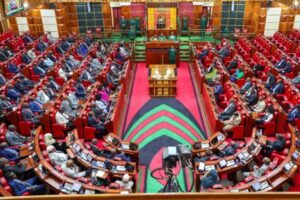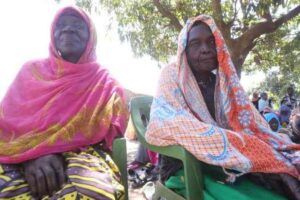
The Nigerian Bar Association Section on Public Interest and Development Law (NBA-SPIDEL) and the Nigeria Police Force have agreed to undertake a comprehensive review of the tinted permit policy to ensure that its enforcement aligns with public interest and national security imperatives.
Chairman of NBA-SPIDEL, Professor Paul Ananaba (SAN), disclosed this in Lagos during an interactive session anchored by Mr Wale Ogunade, held as part of activities ahead of the SPIDEL 2025 Conference.
Ananaba said the decision followed weeks of deliberation between the association and senior police authorities after widespread complaints by motorists over harassment and arbitrary vehicle impoundments by law enforcement officers enforcing the tinted permit directive.
He explained that the association’s intervention became necessary in response to growing public outrage over the indiscriminate arrest of motorists whose vehicles did not have completely transparent windows.
“Following our discussions with senior police officers, we agreed that the enforcement of the tinted permit should be suspended while a joint review committee is constituted,” he said.
According to him, the committee, which will comprise representatives of both NBA-SPIDEL and the Nigeria Police Force, will examine the legal, regulatory, and security dimensions of the policy and recommend new modalities that strike a balance between citizens’ rights and public safety.
Ananaba stressed that SPIDEL’s engagement with the police was not adversarial but aimed at promoting fairness, accountability, and the rule of law within the nation’s law enforcement framework.
He noted that the association had also instituted a legal action against the police over alleged discriminatory practices, adding that such steps were consistent with SPIDEL’s mandate to defend public interest and uphold constitutional principles.
“SPIDEL is not a body of activists; our focus is public interest and development,” he stated, reaffirming the section’s commitment to constructive dialogue with public institutions to drive reform.
The senior advocate also announced that the SPIDEL 2025 Conference would hold in Uyo, Akwa Ibom State, on December 5, 2025, and would focus on reforms in justice administration, governance, and international collaboration to advance human rights and public accountability.
Meanwhile, the Vance Centre for International Justice has proposed a strategic partnership with NBA-SPIDEL to institutionalise pro bono legal services and strengthen public interest law practice across Africa.
Director of the Africa Initiative at the Vance Centre, Mrs Adaobi Egboka, made the presentation during the same interactive session in Lagos, where she outlined the Centre’s proposal to collaborate with the NBA in promoting access to justice, ethical legal practice, and development.
Egboka explained that the Vance Centre, a non-profit arm of the New York City Bar Association, works globally to advance justice through cross-border legal collaborations, institutional integrity, and pro bono initiatives.
She said the Centre operates through four major programme areas: environment, human rights and access to justice, institutional integrity, and public interest reporting, all geared towards strengthening democracy and the rule of law.
She further stated that the proposed partnership would assist the NBA in developing a structured national framework for pro bono work, creating a database of participating law firms, and establishing metrics to measure and report contributions to legal aid.
Egboka therefore called for collaboration in formulating a “Pro Bono Declaration for Africa,” modelled after the Pro Bono Declaration of the Americas, which commits law firms to dedicating a specified number of hours annually to providing free legal services for underserved populations.
She said such a declaration would foster greater accountability within the legal profession, promote inclusivity, and expand access to justice for vulnerable groups.
Egboka noted that the Vance Centre had successfully launched a Pro Bono Institute in Kenya in partnership with local universities and law firms, serving as a model that could be replicated in Nigeria through cooperation with NBA-SPIDEL.
She urged the Nigerian Bar to support the Centre’s vision of building a data-driven, sustainable, and institutionalised pro bono culture that reflects the continent’s growing commitment to justice and human rights.





